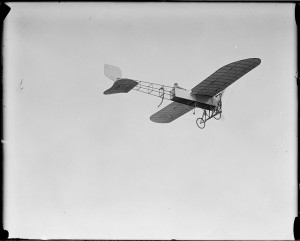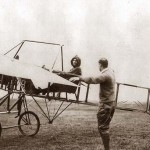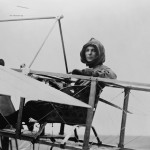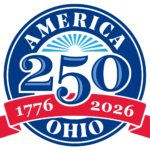 English Channel 1912 -
English Channel 1912 -
How I Made My First Big Flight Abroad
My Flight Across the English Channel
by Harriet Quimby
(The first woman to fly the English Channel)
As published in FLY MAGAZINE, July 12, 1912, page 8-10
While flying in Mexico, at President Madero's inauguration, last December, an ambition to be the first woman aviator to cross the English channel alone entered my mind. The more I thought of it, the less formidable the feat seemed to be. Without mentioning the matter to a soul, for fear that some one across the sea might anticipate my idea, I waited until my return to New York. There I secured a letter of introduction to Louis Bleriot and prepared to present it to him at his factory in Paris.
On the seventh of March I sailed on the Hamburg-American liner Amerika, went to London and disclosed my project to the wide-awake editor of the London Mirror. He was delighted with the idea and immediately offered me a handsome inducement if I would make the trip as the Mirror's representative. The next thing necessary was to get a monoplane. I went to Paris, saw Mr. Bleriot and placed an order with him for a seventy-horse-power passenger machine, regarding which I had had some correspondence with the firm. At the same time I readily arranged with Mr. Bleriot for the loan of a fifty-horse-power monoplane of the type I had been accustomed to in the United States.
Mr. Bleriot has a hanger at Hardelot, where he has a seaside home. It seemed prudent to try out the new machine first in some quiet way. So it was shipped to Hardelot. I followed soon after. The control of the new machine was a trifle different from that which I had been using in the United States, hence my desire to have a trial flight.
I was eager to test the new machine and rose early the following morning, to find the wind blowing a gale. Patiently we waited all day long for it to diminish. Usually it dies out in the evening, but it kept constantly increasing, until it whistled around the corners of the house at a velocity of forty miles. The next morning, at five, once more I prepared to go out into the chilly air to make a trial. Still the wind blew a gale, and it continued to blow throughout the day.
The persistent gale at Hardelot would not permit me to carry out my plan to try out the machine. Time was flying - even if I was not. I had promised the Mirror editor to be at Dover promptly,. So I arranged to have the Bleriot monoplane shipped across to Dover at once and wired the Mirror to have its photographers and reporters meet me at the Hotel Lord Warden, at Dover. It was vitally important that nothing should be known of my contemplated journey, so the machine was shipped very secretly to the aerodrome on Dover heights, about three miles back from the channel, a fine, smooth ground from which to make a good start. The famous Dover Castle stands on the cliffs, overlooking the channel. It points the way clearly to Calais.
It points the way clearly to Calais.
I saw at once that I had only to rise in my machine, fix my eyes upon the castle, fly over it and speed directly across to the French coast. It seemed so easy that it looked like a cross-country flight. I am glad I thought so and felt so, otherwise I might have had more hesitation about flying in the fog with an untried compass, in a new and untried machine, knowing that the treacherous North Sea stood ready to receive me if I drifted only five miles too far out of my course. This was the fate of D. Leslie Allen, the English aviator, who started the same day as I did, in a monoplane similar to mine, on a flight over the Irish Channel from London to Dublin. He started, but he never came back. it is a mystery of the Irish Channel.
Sunday, April 14th, was a perfect day for flying across the channel. There was no wind. The sun was bright and warm. The air was so clear that by straining our eyes a little we could see the French coast dimly outlined across the channel. Everybody said, "Start now. This is your chance. We may have high winds tomorrow and they may last two weeks. That has been the experience of every one who has come here to make the channel flight." I have made it a rule not to fly on Sunday, so we all agreed to try it early Monday morning if the weather would permit.
Our movements, of course, attracted attention. Fortunately, Gustave Hamel, the famous English aviator, was with us, as he had volunteered to try out my new machine and get the engine in tune. He did this on Sunday, while a number of persons gathered around the aerodrome fences to see what was going on. Somehow, the rumor had gone out that a woman was to attempt to cross the channel alone in an aeroplane. A few reporters visited the aerodrome with watchful eyes, but as nothing happened they retired one after the other, until we had the field to ourselves.
After all our patient waiting and hoping against hope that the wind would go down toward evening, there was no abatement in its strength. We went back to our hotel at seven P.M., tired, chilled and disgusted. The wide-awake Mirror reporters who had taken a tug out into the choppy sea in midchannel and another group who were waiting back of Calais to witness my landing were even more disappointed than we. My greatest disappointment was that I had had no chance to try out the new machine.
"All things come to him who waits." At three-thirty Tuesday morning we were called, had our hot tea, got into our automobiles and at four o'clock were on the flying grounds. There was no wind. Scarcely a breath of air was stirring. The monoplane was hurried out of the hangar. We knew that we must hasten, for it was almost certain that the wind would rise again within an hour. Mr. Hamel, whose courtesy and consideration I shall always remember, jumped into the machine and was off for a short "try-out" of the engine and to report atmospheric conditions. He found everything satisfactory and hurried back, making one of the beautiful landings for which he is famous.
 Photos courtesy of the London Daily Mirror Archives - Harriet Quimby drives to the Dover aerodrome April 16, 1912, and Harriet Quimby putting on gloves in preparation for her crossing, April 16, 1912 - Dover
Photos courtesy of the London Daily Mirror Archives - Harriet Quimby drives to the Dover aerodrome April 16, 1912, and Harriet Quimby putting on gloves in preparation for her crossing, April 16, 1912 - Dover
It was my turn at last. Everybody was expectant. I was eager to get into my seat and be off. My heart was not in my mouth. I felt impatient to realize the project on which I was determined, despite the protest of my best friends. For the first time I was to fly a Bleriot monoplane. For the first time I was to fly by compass. For the first time I was to make a journey across the water. For the first time I was to fly on the other side of the Atlantic. My anxiety was to get off quickly.
The sky seemed clear, but patches of cloud and masses of fog here and there obscured the blue. The French coast was wholly invisible, by reason of moving masses of mist. The wind had not come up yet. The smooth grounds of the aerodrome gave me a chance for a perfect start. I heeded Mr. Hamel's warning about the coldness of the channel flight and had prepared accordingly. Under my flying suit of wool-back satin I wore two pairs of silk combinations, over it a long woolen coat, over this an American raincoat, and around and across my shoulders a long, wide stole of sealskin. Even this did not satisfy my solicitous friends. At the last minute they handed up a large hot-water bag, which Mr. Hamel insisted on tying to my waist like an enormous locket.
I soon found that I was not too warm. The channel passage was chilly enough, especially when I shot through the damp banks of mist that speedily enveloped me. I did not suffer, for the excitement stimulated my warmth; but I noticed, when I landed, that the hot-water bag was as cold as ice. It surely saved me something.
It was five-thirty A.M. when my machine got off the ground. The preliminaries were brief. Hearty handshakes were quickly given, the motor began to make its twelve hundred revolutions a minute, and I put up my hand to give the signal of release. Then I was off. The noise of the motor drowned the shouts and cheers of friends below. In a moment I was in the air, climbing steadily in a long circle. I was up fifteen hundred feet within thirty seconds. From this high point of vantage my eyes lit at once on Dover Castle. It was half hidden in a fog bank. I felt that trouble was coming, but I made directly for the flag-staff of the castle, as I had promised the waiting Mirror photographers and the moving-picture men I should do.
In an instant I was beyond the cliffs and over the channel. Far beneath me I saw the Mirror's tug, with its stream of black smoke. It was trying to keep ahead of me, but I passed it in a jiffy. Then the thickening fog obscured my view. Calais was out of sight. I could not see ahead of me at all nor could I see the water below. There was only one thing for me to do and that was to keep my eyes fixed on the compass.
My hands were covered with long, Scotch woolen gloves, which gave me good protection from the cold and fog; but the machine was wet and my face was so covered with dampness that I had to push my goggles up on my forehead. I could not see through them. I was traveling at over a mile a minute. The distance straight across from Dover to Calais is only twenty-two miles, and I knew that land must be in sight if I could only get below the fog and see it. So I dropped from an altitude of about two thousand feet until I was half that height. The sunlight struck upon my face and my eyes lit upon the white and sandy shores of France. I felt happy, but I could not find Calais. Being unfamiliar with the coast line, I could not locate myself. I determined to reconnoiter and come down to a height of about five hundred feet and traverse the shore.
Meanwhile, the wind had risen and the currents were coming in billowy gusts. I flew a short distance inland to locate myself or find a good place on which to alight. It was all tilled land below me, and rather than tear up the farmer' fields I decided to drop down on the hard and sandy beach. I did so at once, making an easy landing. Then I jumped from my machine and was alone upon the shore. But it was only for a few moments. A crowd of fishermen - men, women and children each carrying a pail of sand worms - came rushing from all directions toward me. They were chattering in French, of which I comprehended sufficient to discover that they knew I had crossed the channel. These humble fisherfolk knew what had happened. They were congratulating themselves that the first woman to cross in an aeroplane had landed on their fishing beach.
An incident that pleased me more than anything else was the hospitality of one of the fisherwomen. She insisted upon serving me with a very welcome cup of hot tea, accompanied by bread and cheese. The tea was served in a cup fully six times as large as an ordinary teacup and was so old and quaint that I could not conceal my admiration of it. The good hearted woman insisted upon giving it to me, and no cup that I have ever won or ever shall win as an aero trophy will be prized more than this.
It was not long before all of Hardelot was racing to the beach.
The newspaper representatives, as soon as they arrived from Calais, produced a bottle of champagne from a place of careful concealment and insisted that I permit them to drink my health while seated in the machine. Of course I did so - anything to oblige these faithful recorders of the events of the day.
I had no change of garment, but the Mirror men had taken my long seal coat on the tug across the channel, the day before, while they were waiting my arrival, and it covered my flying suit effectively. Then I got into an automobile and motored to Calais, about thirty miles distant, in time to catch a fast train that took me into Paris at seven P.M., a very tired but a very happy woman.








